ГДЗ Англійська мова 9 клас. Підручник [Карпюк О.Д.] 2017
Unit 2.
Lesson 1. Magic Box
READING & VOCABULARY
1a. Guess the meanings of the words in the left column, then match two columns.1. Website is a page that is linked to related pages.
2. Chat room is a site on the Internet where a number of users can communicate.
3. Native speaker is a speaker of a language who has spoken it since early childhood.
4. Education is the knowledge or skill that you get through a learning process.
1b. Read the text and name three things about the Internet you find the most important.
The Internet is very powerful educational tool which is multifunctional, speedy and convenient.
2. Match the words with their definitions.
7-The internet: an international computer network connecting other networks and computers from companies, universities, different organizations, etc.
6-To download: to move information from a larger computer system to a smaller one.
4-E-mail: a way of sending messages and information to other people by means of computers connected to a network.
3-To blog: to write about your activities and opinions on the net (like keeping an online diary) so that other people can read and discuss them.
9-Website: a place connected to the Internet where a company, an organization or an individual puts information.
2-Password: a secret word or a phrase that you need to know to be allowed to use the computer system.
5-Blogger: a person who writes an online diary.
1-To surf: to use the Internet while looking for information.
5-Chat room: an area of the Internet where you can communicate with each other.
3а). Read the statements below. Copy them in your notebooks under the headings:
| good | bad |
| It entertains. | Children surf the Internet and can’t concentrate on other things. |
| It helps us see faraway things. | Children watch different sites late at night and don’t get enough sleep. |
| Children can learn more about the world. | It’s easier to watch videos than read books, so children read less. |
| You can meet famous and interesting t people. | People don’t talk at home but surf the Internet. |
| It helps us to be tolerant because we learn how different places and people are. | |
| The Internet keeps children company so they learn how to be on their own. |
| It helps cooperate creatively. | Children become dependent on virtual life too much. |
| There are huge possibilities to learn anything you would like to. | The internet is source of viruses too. |
1. TV news — The President is visiting London.
2. TV serial — See the next episode of Mobamba Bay on Saturday.
3. Action film — Here is a laser gun for you, Mr Bond.
4. Cartoon — Me, me! Catch me if you can!
5. TV commercial — Our chewing gum makes your teeth white.
6. Sports program — And it’s in the net. A goal. That makes in two-nil.
7. Quiz — Who discovered Australia? You’ve got ten seconds.
8. TV for school — And today we have English. Ready, steady, go!
9. Concert — And the singer is Miss Gloria Jackson, live!
10. Documentary — The polar bear likes playing in the snow.
11. Talk show — Our guest today is the famous writer: Miss Cherry Stone.
12. Drama — I want to die. Oh, why did he have to leave me?
6. Have a quick look at the argument in the following dialogue and say what it is about. Choose a), b) or c).
the argument is about the new. b reality show.
7a) Find the corresponding paraphrase for these words:
7. Sacrifice: when you do or don’t something in the name of love or some higher principle.
1. Attitude: a frame of mind, an opinion, a view.
2. Desperate: trying very hard to achieve or avoid something.
3. Provocative: annoying, offensive, challenging, not ordinary.
4. Criteria: a kind of pattern, a standard to judge something.
8. Perspective: angle, a personal view of a situation.
5. Trash: something unimportant, junk, rubbish.
6. Loyalty: a kind of bond you feel with someone, reliability.
8a) Choose at least three simple words that you use and three compicated (‘big’) ones.
| Simple words | ‘Big’ words |
| chit-chat — informal conversation about things that are not very important | ambition — a strong desire to achieve something |
| small talk — polite friendly conversation about unimportant thing | perspective — a way of thinking about something |
| no clue — to not have any-idea about the answer to a question | criteria — standards that you use to judge something or make a decision about something |
| gossip — information that is passed from one person to another one about other people’s behavior and private lives, often including unkind or untrue remarks | sacrifice — when you refuse to have something valuable in the name of something more important |
| flirting — behaving towards someone in a way that shows that you are sexually attracted them, although you do not really want a relationship with them | dignity — the ability to keep self-control even in a difficult situation |
| eating — putting food in your mouth and chewing and swallowing it | education — the process of teaching and learning |
| gang — a group of young people who spend time together | orientation — the type of activity or subject that a person seems most interested in |
| fooling around — wasting time behaving in a silly way or doing things that are important | principles — moral rules about what is right and wrong that influences how you behave |
| stuff — informal things | loyalty — be faithful to your friends, principles, country etc. |
Simple worlds. 1. I like chit-chatting with friends to let my mind rest after lessons. 2. That was the one of the thousand small talks which insensibly for us was eating our life. 3. I wasn’t prepared for the lesson so I had no clue how to solve that task. 4. Exchanging gossips is a regular ritual of my mates.
‘Big’ words. 1. To achieve a goal you should have a strong ambition. 2. The mother sacrificed her life to provide happy future for her daughter. 3. Education can be enjoyable work if both teacher and pupils like it.
 ГДЗ 9 клас Англійська мова Підручник Либра Терра 2017 Карпюк
ГДЗ 9 клас Англійська мова Підручник Либра Терра 2017 Карпюк
 Якщо помітили в тексті помилку, виділіть її та натисніть Ctrl + Enter
Якщо помітили в тексті помилку, виділіть її та натисніть Ctrl + Enter 16.12.2018,
16.12.2018,
 75 616,
75 616,
 18
18
 Назад
Назад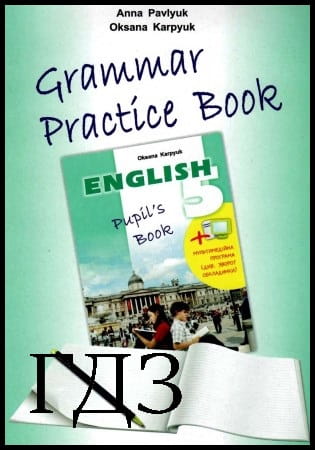
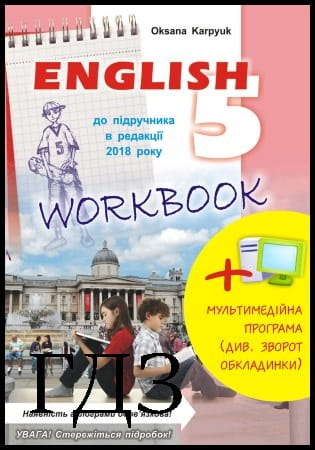
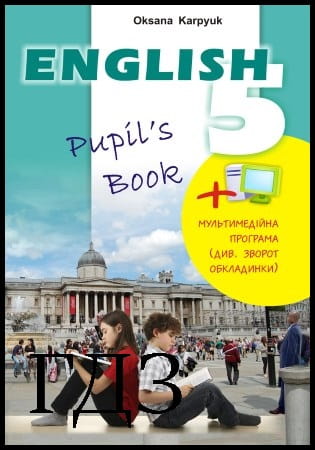
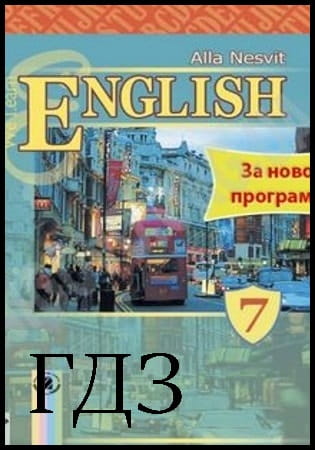
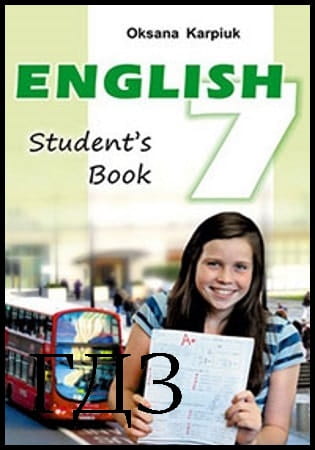
![ГДЗ Природознавство 5 клас. Підручник [Ярошенко О.Г., Бойко В.М.] 2018 ГДЗ Природознавство 5 клас. Підручник [Ярошенко О.Г., Бойко В.М.] 2018](/uploads/posts/2019-04/1555779316_5_p_y_u2018.jpg)
![ГДЗ Основи правознавства 9 клас. Підручник [Наровлянський О. Д.] 2017 ГДЗ Основи правознавства 9 клас. Підручник [Наровлянський О. Д.] 2017](/uploads/posts/2019-02/1550928122_9k_p_n_2017.jpg)
![ГДЗ Українська мова 8 клас. Підручник [Глазова О.П.] 2021 ГДЗ Українська мова 8 клас. Підручник [Глазова О.П.] 2021](/uploads/posts/2021-10/1633720388_8k_y_g_2021.jpg)
![ГДЗ Вступ до історії 5 клас. Підручник [Гісем О.В.] 2018 ГДЗ Вступ до історії 5 клас. Підручник [Гісем О.В.] 2018](/uploads/posts/2019-07/1564163269_5k_i_h_2018.jpg)